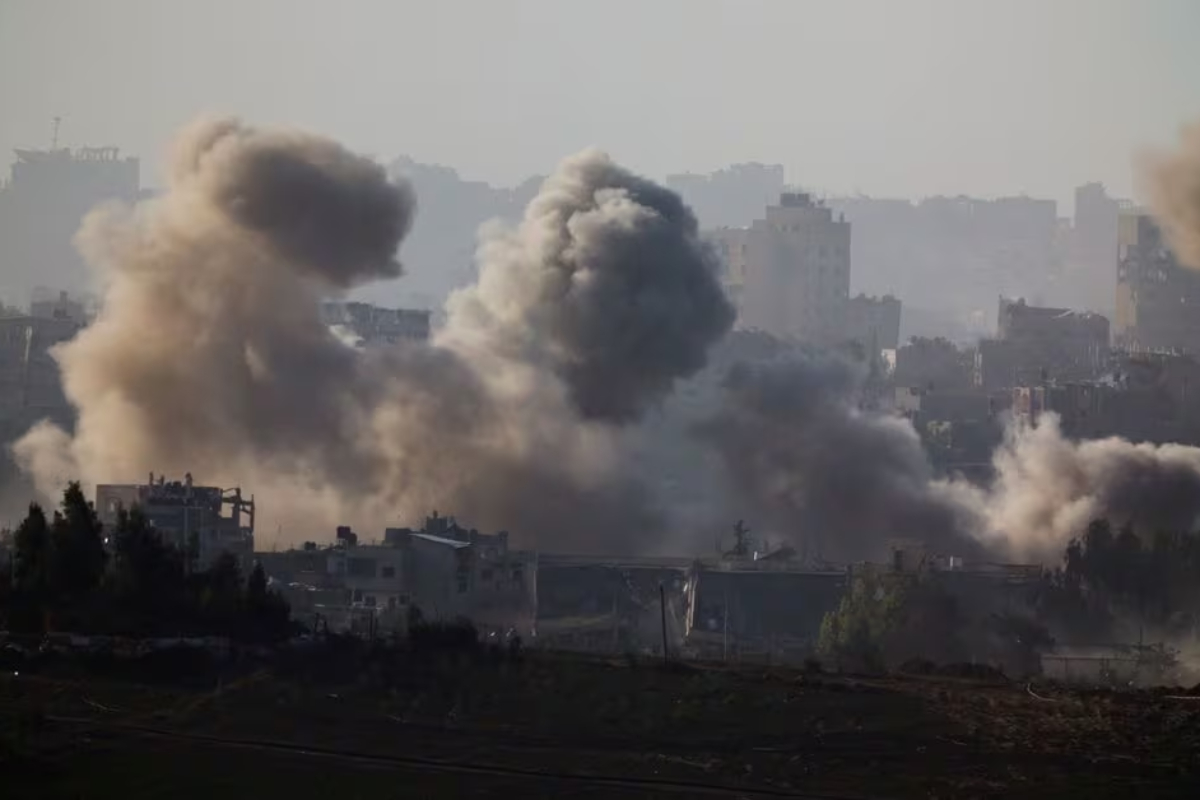JERUSALEM: There were no reports of bombings, artillery strikes or rocket attacks as Israel and Hamas started a four-day ceasefire in Gaza on Friday, the first pause in a 48-day-old war that has devastated the Palestinian enclave.
The truce began at 7 a.m. local time, involving a comprehensive ceasefire in north and south Gaza, the release of 13 Israeli women and child hostages later in the day and aid to flow into the besieged enclave.
A number of Palestinian prisoners held in Israeli prisons were to be freed in exchange. Lebanon’s Al-Mayadeen TV reported that since the start of the truce, no sounds of bombing were heard in Gaza. Sirens sounded in two Israeli villages outside the southern Gaza Strip, warning of possible incoming Palestinian rockets.
Fighting had raged on in the hours leading up to the truce, with officials inside the enclave saying a hospital in Gaza City was among the targets bombed. Both sides also signalled the pause would be temporary before fighting resumes.
The Indonesian hospital was reeling under relentless bombing, operating without light and filled with bedridden old people and children too weak to be moved, Gaza health officials said. wounded woman, was killed and three others injured.
Additional aid would start flowing into Gaza and the first hostages, including elderly women, would be freed at 4 pm, with the total number rising to 50 over the four days, Qatar’s foreign ministry spokesperson Majed Al-Ansari said in Doha.
Hamas-affiliated Shehab news agency reported that fuel trucks were entering the Rafah crossing once the truce was underway. Egypt has said 130,000 litres of diesel and four trucks of gas will be delivered daily to Gaza when the truce starts, and that 200 trucks of aid would enter Gaza daily.
Palestinians were expected to be released from Israeli jails, the Qatari spokesperson told reporters. “We all hope that this truce will lead to a chance to start a wider work to achieve a permanent truce.”
Hamas confirmed on its Telegram channel that all hostilities from its forces would cease. Israel’s military said its troops would stay behind a ceasefire line inside Gaza, without giving details of its position.
Israel launched its devastating invasion of Gaza after gunmen from Hamas burst across the border fence on October 7. Since then, Israel has rained bombs on the tiny enclave, killing some 14,000 Gazans, around 40% of them children.
Ahead of the ceasefire, fighting became even more intense on Thursday, with Israeli jets hitting more than 300 targets and troops engaged in heavy fighting around Jabalia refugee camp north of Gaza City.
International alarm has focused on the fate of hospitals, especially in Gaza’s northern half, where all medical facilities have ceased functioning with patients, staff and displaced people trapped inside.
Israel says Hamas fighters use residential and other civilian buildings, including hospitals, as cover – a charge that Hamas denies.


